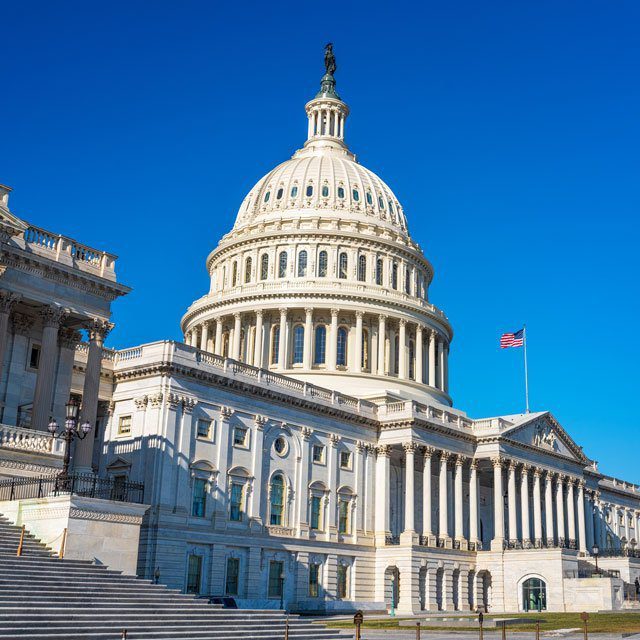Biden's Economic Plan Hits Crunch Time

Energy Items
The House in November passed a bill with $550 billion in funding for climate-related initiatives. The Senate is looking to pare that back to appease Manchin. On the possible chopping block are direct-pay subsidies to renewable energy firms and expanded tax credits for the purchase of electric vehicles.
The final package is expected to include some kind of fee on methane emissions from oil and gas operations, Democratic Senator Tom Carper of Delaware said. Manchin also continues to press the administration to fast-track permitting for fossil fuels.
Tax Reform
A 15% corporate minimum tax on so-called book profits is expected to make it into the budget package, but negotiations continue on a 15% global minimum tax and a surtax for high earners.
So far, it’s unclear how Democrats will deal with demands by a key group of House members for lifting the $10,000 cap on the federal deduction for state and local taxes (SALT). That change would benefit voters in high-tax states like New Jersey, New York and California. Democrats including New Jersey’s Josh Gottheimer have said their votes hinge on lifting the SALT cap.
Revenue in the current proposal also comes from expanded funding for tax audits and a 1% tax on stock buybacks. A so-called millionaires surtax, however, is on the verge of being cut from the package.
China Competition
A bipartisan bill aimed at boosting U.S. industrial competitiveness against China and investing in the domestic semiconductor industry is in jeopardy after Senate Minority Leader Mitch McConnell said he would block it because Democrats are now pushing the reconciliation bill to ram through Biden’s economic agenda.
Democrats are exploring options to get around the McConnell blockade, including the House simply passing the version of the China bill that the Senate passed last year. It’s unclear, however, whether there are enough votes.
Fiscal 2023 Spending
The Oct. 1 start of the coming fiscal year is approaching, and Congress is far from completing the necessary annual federal spending bills. The House plans to pass a package of six bills the week of July 18, but it’s almost certain the federal government will require a stopgap continuing resolution come October, since Senate Republicans don’t support the House bills.
The House’s $1.6 trillion top-line spending level is sure to change given bipartisan support for higher military spending in the face of high inflation and the fresh security challenges posed by Russia’s Ukraine invasion.
A push by Democrats to allow taxpayer funding for abortions in the wake of the Supreme Court ruling overturning Roe vs. Wade could make talks with the GOP difficult.
Antitrust Policy
The Senate’s tentative plans for a July vote on a bipartisan antitrust measure risks getting pushed into September or beyond given the focus on the Biden economic agenda. The legislation would bar major online companies from favoring their own service over those of rivals who use their platforms.
Amazon Inc., Alphabet Inc.’s Google, Apple Inc. and Meta Platforms Inc. — the companies most likely to be affected by proposed legislation — have spent millions of dollars lobbying against it. The bill has support from a wide range of lawmakers, as well as smaller tech companies like Yelp, Match Group and Spotify.
Defense Policy
The House this week will vote on the annual defense authorization bill, which calls for a $37 billion boost to the national security budget above Biden’s request. But appropriators would need to sign off on it in order for the higher level of spending to come into effect.
The Senate Armed Services Committee’s version of the policy bill authorized a $45 billion increase. The Senate likely won’t take up the defense bill until at least September, and it could become a vehicle for elements of the stalled China competition bill.
(Image: Shutterstock)





